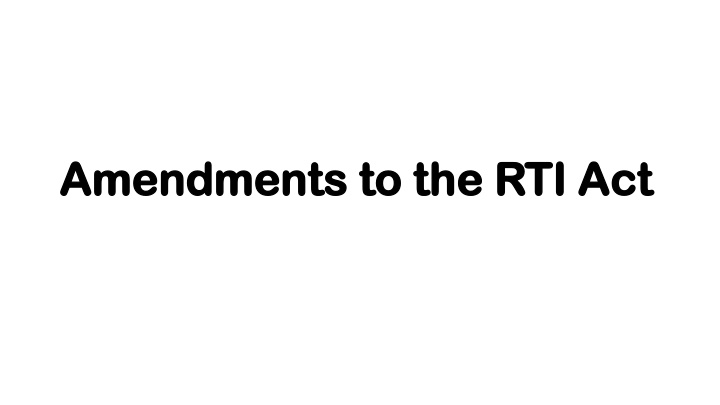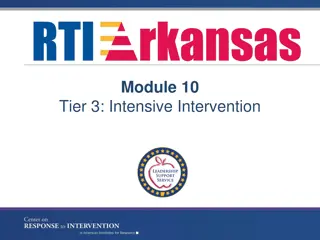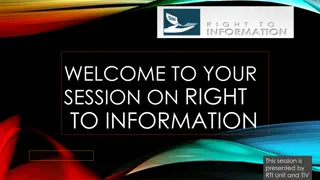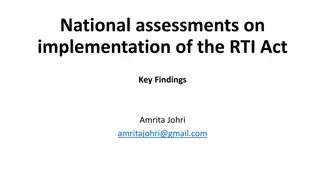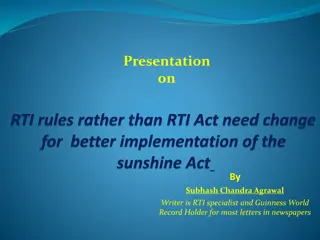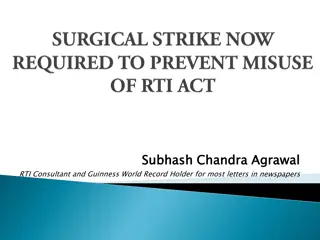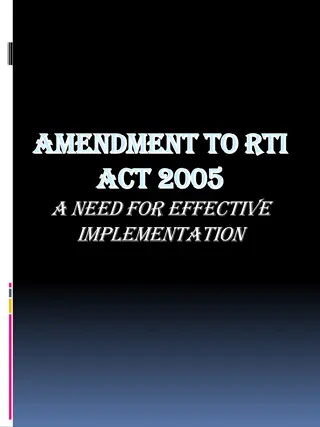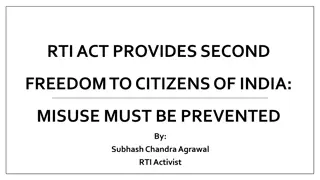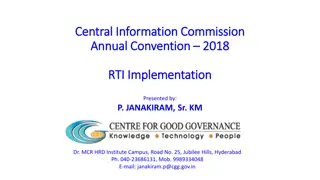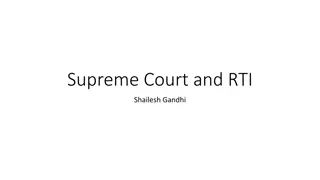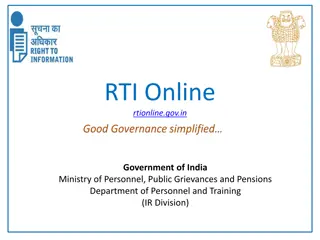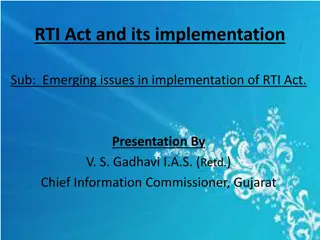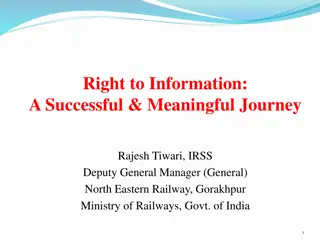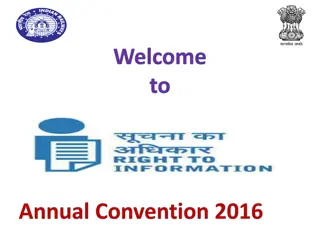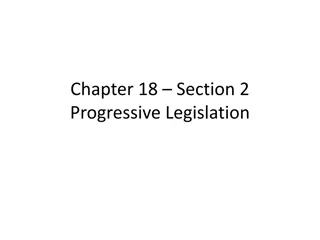Challenges and Reforms in the RTI Act
The RTI Act faces backlash, with attacks on users and repeated attempts to amend the law. Vacancies in information commissions create backlogs, impacting transparency and accountability. The 2018 RTI Amendment Bill raises concerns about centralizing power and compromising independence.
Download Presentation

Please find below an Image/Link to download the presentation.
The content on the website is provided AS IS for your information and personal use only. It may not be sold, licensed, or shared on other websites without obtaining consent from the author.If you encounter any issues during the download, it is possible that the publisher has removed the file from their server.
You are allowed to download the files provided on this website for personal or commercial use, subject to the condition that they are used lawfully. All files are the property of their respective owners.
The content on the website is provided AS IS for your information and personal use only. It may not be sold, licensed, or shared on other websites without obtaining consent from the author.
E N D
Presentation Transcript
Amendments to the RTI Act Amendments to the RTI Act
Context: Who uses the RTI Act and for what? Nearly 6 million RTI applications are being filed every year According to estimates, around 40 million RTI applications filed so far A very large percentage of these applications are filed by the poorest and most marginalized to access information about their basic rights and entitlements RTI law has empowered citizens to hold the government and its functionaries accountable Used by people to question the highest offices
The Backlash Attacks on RTI users more than 70 killed Attempts to denigrate the Act through statements about misuse of the law - research has shown less than 1% applications can be termed frivolous or vexatious Vacancies in information commissions resulting backlog in commissions Repeated attempts to amend the law
IC Posts vacant Backlog CIC 4 vacant posts. 4 more by December 1, 2018, including chief. 23,962 (29/6/18) Andhra Pradesh Commission defunct since May 2017. In October 2018, 3 commissioners appointed, but no Chief. West Bengal 9 vacant posts More than 8,000 (31/10/17) Odisha 8 vacant posts More than 10,000 (31/10/17) Telangana 9 vacant posts 9341 (30/06/18) Maharashtra 3 vacant posts More than 40,000 (28/02/18) Gujarat 9 vacant posts More than 4,500 (29/6/18) Kerala 6 vacant posts Nearly 14,000 (31/10/17)
Repeated attempts to amend the RTI Act 2006 - Government tried to remove file notings from the purview of the law 2010 - Government attempted to stop vexatious and frivolous RTI queries 2013 - Bill introduced in Parliament to remove political parties from the ambit of the RTI law 2018 Proposal to introduce amendment bill in Rajya Sabha and amendments proposed by the Justice Srikrishna Committee
RTI Amendment Bill, 2018 No pre-legislative consultation Attack the edifice of the law by compromising the independence of information commissions Empower central government to make rules to determine the tenure, salaries and other terms of service of all information commissioners Violate the principle of federalism
Performance of commissions 50% of denials by CIC in violation of the RTI Act Ignored mandatory exceptions to the exemptions 56% orders violations listed in Section 20 of the RTI Act, based on which the IC should have triggered the process of penalty imposition Penalty imposed in less than 4% of the cases in which it was imposable
